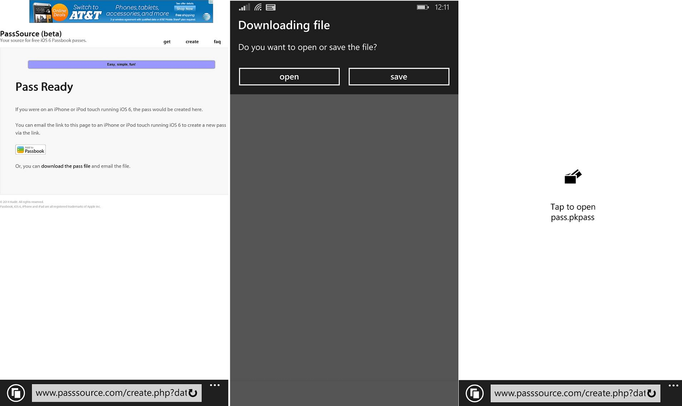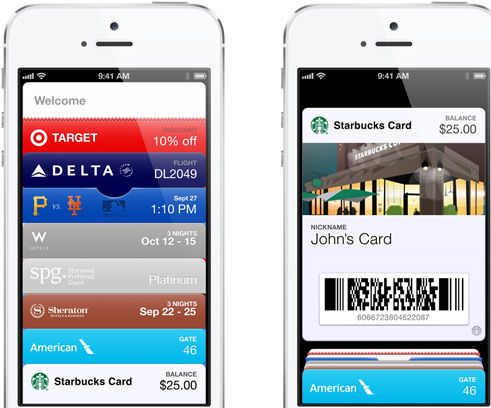Microsoft today released a developer preview of its forthcoming upcoming Windows Phone 8.1 software update and one outlet has spotted an interesting new feature allowing folks to import Passbook items into the Microsoft Wallet app.
Announced at WWDC last summer, Passbook lets you store coupons, boarding passes, event tickets, store cards and more into the stock iOS Passbook app and sync these items across other iOS and Mac devices through iCloud.
Apple has envisioned Passbook as an iOS feature, but several Android apps now support the feature, like PassWallet. And now people on Microsoft’s mobile platform will soon be able to use Passbook on their Windows Phone devices as well…
WPCentral has been able to confirm that a developer preview of the upcoming Windows Phone 8.1 update can import Passbook items into the Microsoft Wallet app.
Apple code-signs their Passbook cards, and it’s not yet clear if Microsoft is simply accepting Apple certificates or accepting any pass regardless of whether it’s signed or not.
The Verge writer Tom Warren claimed on Twitter that Windows Phone 8.1 supports Passbook natively, indicating the feature is baked deeply into the bowels of Microsoft’s operating system.
“I’ve been using it for flights,” he said, adding the Passbook in Windows Phone 8.1 “works perfectly.”
Microsoft may have worked with Apple on enabling Passbook support in Windows Phone 8.1, but the current implementation leaves a lot to be desired. The problem is, Windows Phone 8.1 can’t update certain Passbook items like gates numbers on boarding passes once they’ve been imported.
This clearly indicates that Windows Phone does not hook into Apple’s servers that push notifications to iOS users when the contents of their Passbook item has changed.
Acknowledging as much, WPCentral speculates that “if there’s no official agreement going on here, it’s possible Apple would put a stop to Passbook support when they find out about it and if they can, technically or legally.”
If you ask me, Apple would be wise to open up Passbook to everyone. But we’re not living in an ideal world – therefore, I suspect this isn’t going to happen anytime soon. For starters, Apple is controlling and wants to own technologies that go into its products exclusively.
Rarely does Apple make its technologies readily available to rivals.
Case in point: FaceTime.
We were told – what, back at the 2010 iPhone 4 introduction? – that FaceTime would be released on an open-source basis so other VoIP services can potentially integrate with FaceTime. To this date, a cross-platform FaceTime remains a pipe dream.
There are, of course, cases of Apple contributing to the community. For example, nearly a decade ago the firm took a small project called WebKit and built the Safari browser around it.
In June of 2005, Safari developer Dave Hyatt confirmed that Apple was open-sourcing WebKit and opening up access to WebKit’s revision control tree and the issue tracker, an atypical move for the company.
WebKit and FaceTime may not be good examples because Passbook is an entirely different beast.
Pundits are adamant that Passbook is simply laying the foundation of what’s believed to be an Apple-branded mobile payment service. If that’s true, it’s perfectly understandable that Tim Cook & Co. would want to ensure that Passbook remains exclusive to Apple.
Passbook was released for public consumption as part of the iOS 6 software update on September 19, 2012.
I, for one, would very much appreciate the ability to access Passbook items no matter what device or platform I happen to be using at any given moment.
You?


